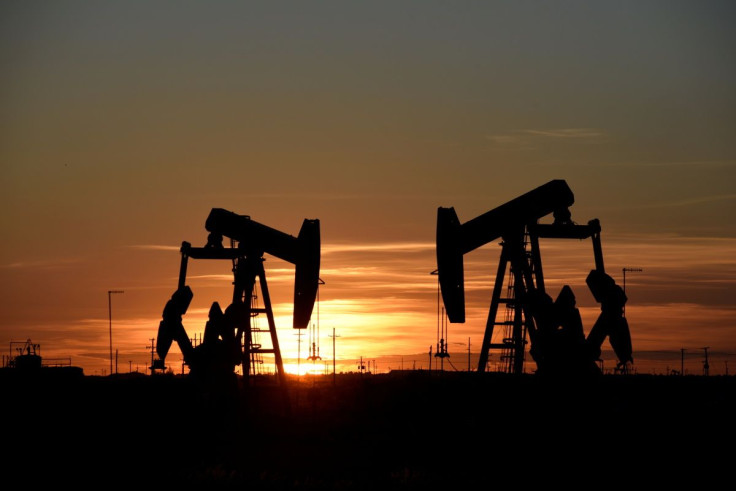Oil Up On EU's Russian Oil Ban, End Of Shanghai Lockdown

Oil prices strengthened on Wednesday after European Union leaders agreed to a partial and phased ban on Russian oil and as China ended its COVID-19 lockdown in Shanghai, which could bolster demand in an already tight market.
Brent crude was up $1.83, or 1.6%, at $117.46 a barrel as of 11:56 a.m. EDT (1556 GMT). U.S. West Texas Intermediate crude gained $1.77, or 1.6%, to $116.45.
Both benchmarks registered gains over May, marking the sixth straight month of rising prices.
"The mood on the oil market is seemingly turning ever more bullish," said Julius Baer analyst Norbert Rucker.
EU leaders agreed in principle on Monday to cut 90% of oil imports from Russia by the end of this year, the bloc's toughest sanctions yet since the start of the invasion of Ukraine, which Moscow calls a "special military operation".
Once fully adopted, sanctions on crude will be phased in over six months and on refined products over eight months. The embargo exempts pipeline oil from Russia as a concession to Hungary and two other landlocked Central European states.
"We maintain our view that, given time, Russia will be able to redirect most of its exports and peg maximum impact on Russian production at 1.5 million barrels per day," JP Morgan said in a note.
Sources told Reuters that Russian oil companies led by Rosneft this month plan to re-open wells that they had shut owing to Western sanctions.
In China, Shanghai's strict COVID-19 lockdown ended on Wednesday after two months, prompting expectations of firmer fuel demand from the country.
Two OPEC+ sources said on Wednesday that members did not discuss the idea of suspending Russia from the current oil supply deal, after the Wall Street Journal reported on Tuesday that such a move was under consideration.
OPEC+ comprises members of the Organization of the Petroleum Exporting Countries and their allies led by Russia. The group is due to meet on Thursday to set policy.
Some Gulf members had begun planning an output increase sometime in the next few months, the Wall Street Journal reported, citing OPEC delegates. OPEC+ has been criticized for not boosting output more quickly to deal with rising fuel prices.
An OPEC+ technical committee on Wednesday trimmed its forecast for the 2022 oil market surplus by about 500,000 bpd to 1.4 million bpd, sources said.
U.S. crude oil production rose in March by more than 3% to its highest since November, a U.S. Energy Information Administration report showed on Tuesday.
Analysts polled by Reuters expected U.S. crude oil inventories to have fallen last week while gasoline and distillate stockpiles were forecast to have increased. Official government data is expected on Thursday. [EIA/S]
© Copyright Thomson Reuters 2024. All rights reserved.







